#Gregg Palmer
Explore tagged Tumblr posts
Text
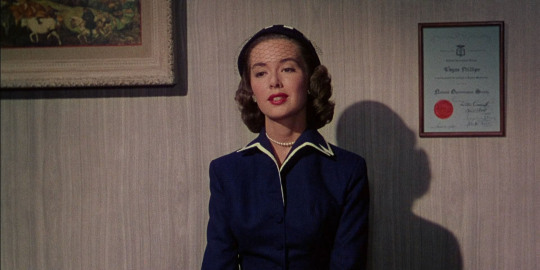
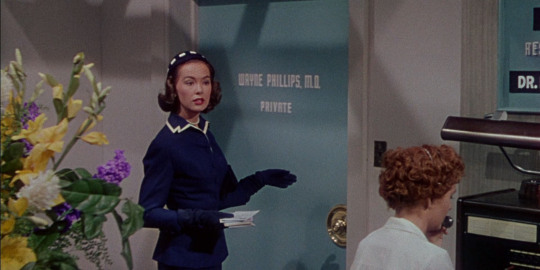

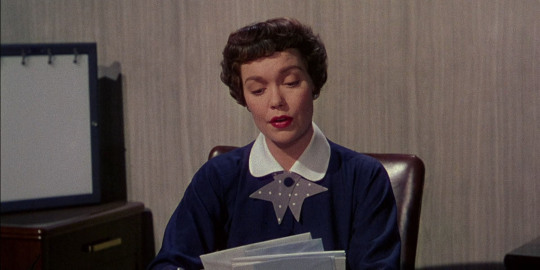
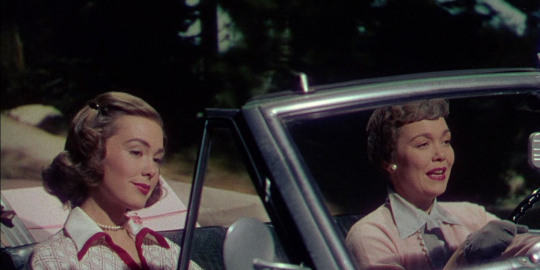
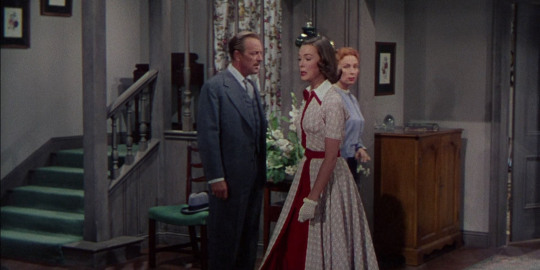
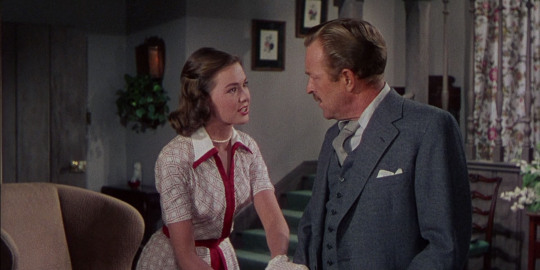
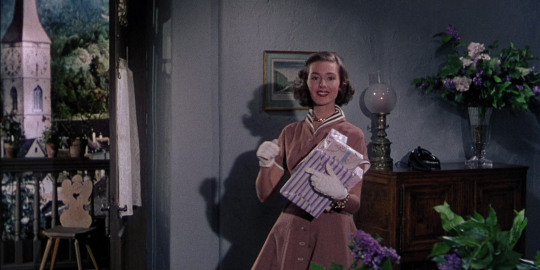
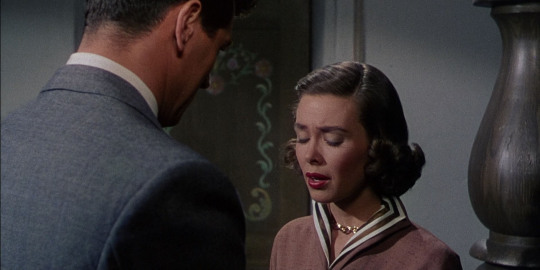


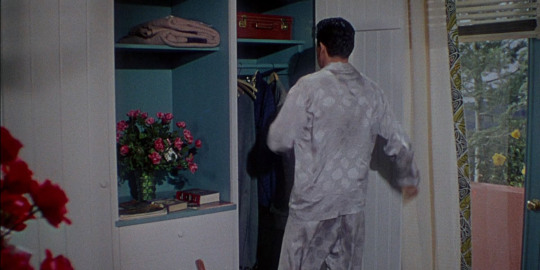
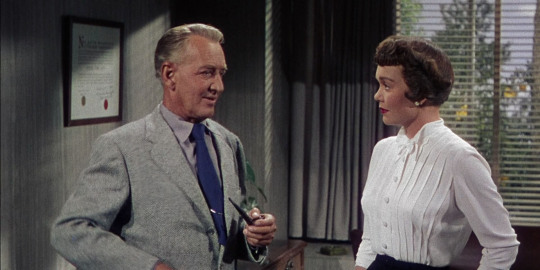
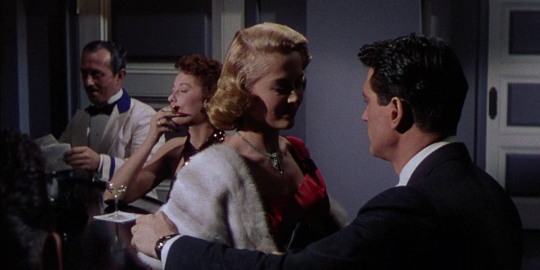
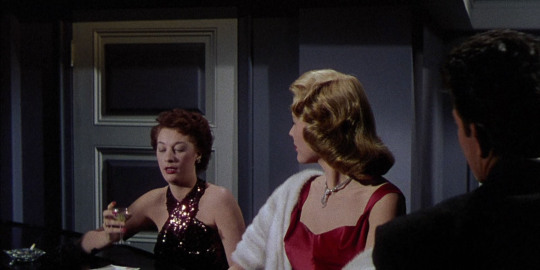
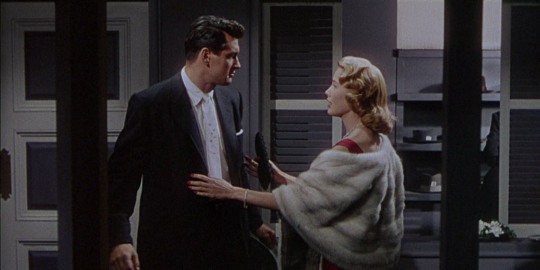
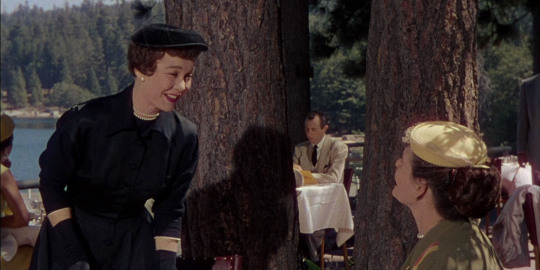

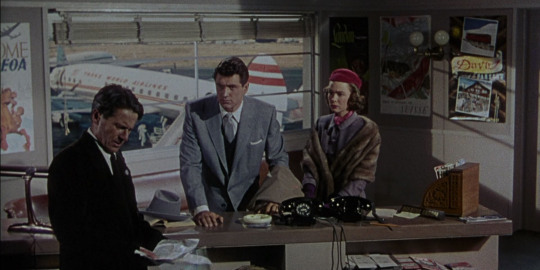

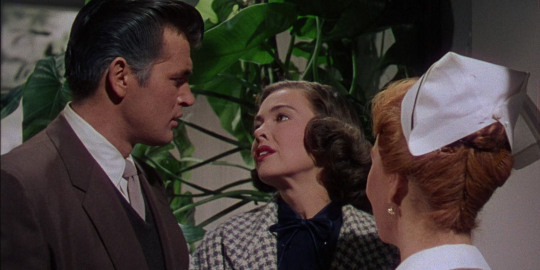

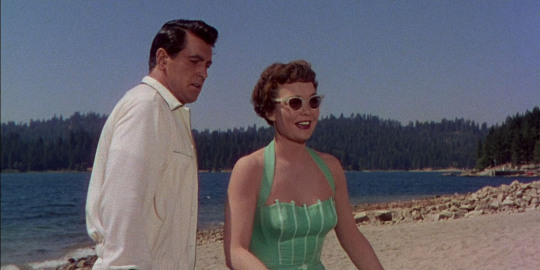
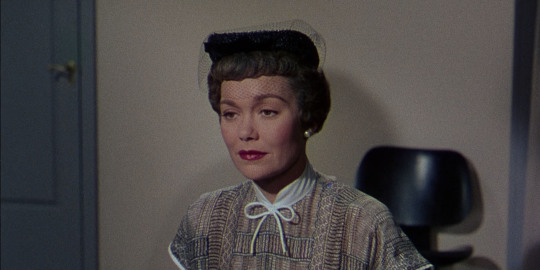
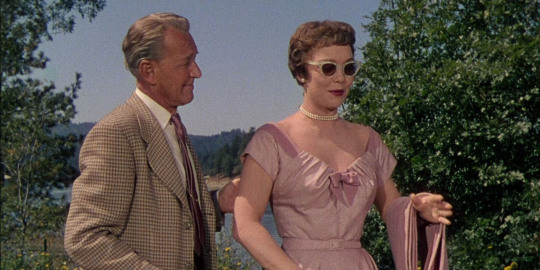
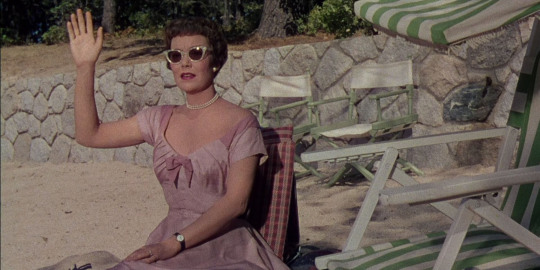
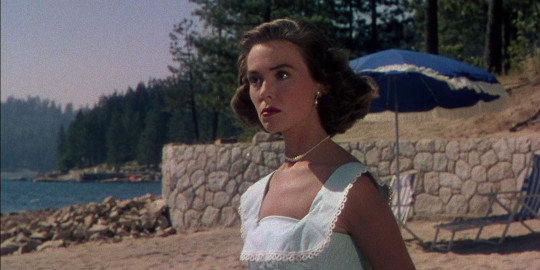
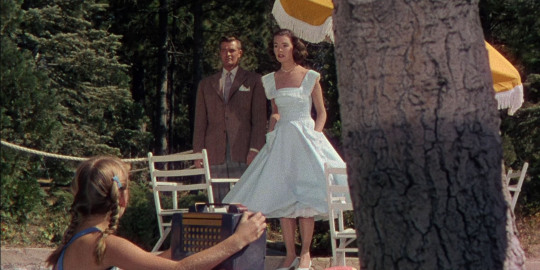

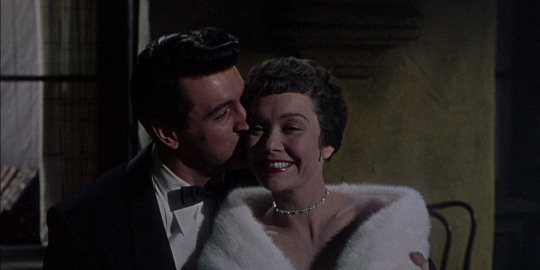
Outfits from Magnificent Obsession (1954)
Art direction by Bernard Herzbrun, Emrich Nicholson Costume design by Bill Thomas (gowns) Hair stylist Joan St. Oegger Makeup artist Bud Westmore
#magnificent obsession#1954#douglas sirk#outfits#costume design#50s fashion#joan st. oegger#bud westmore#jane wyman#rock hudson#1950s film#50s movies#agnes moorehead#otto kruger#barbara rush#gregg palmer#fashion#movie costumes
29 notes
·
View notes
Text
Now watching:
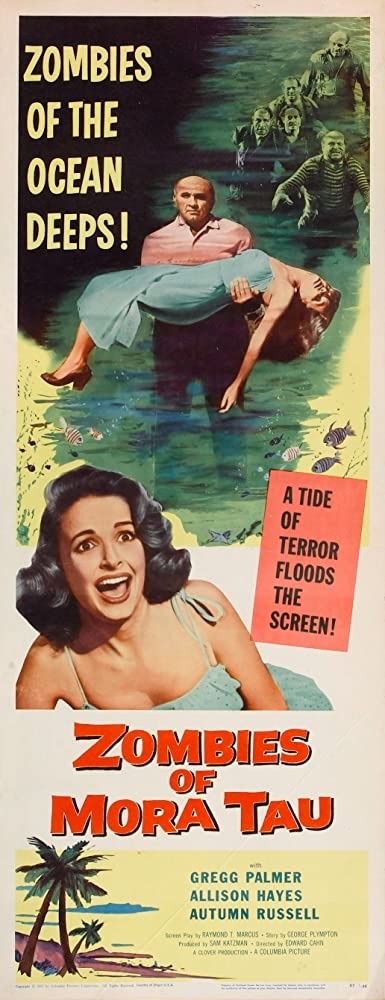
3 notes
·
View notes
Text
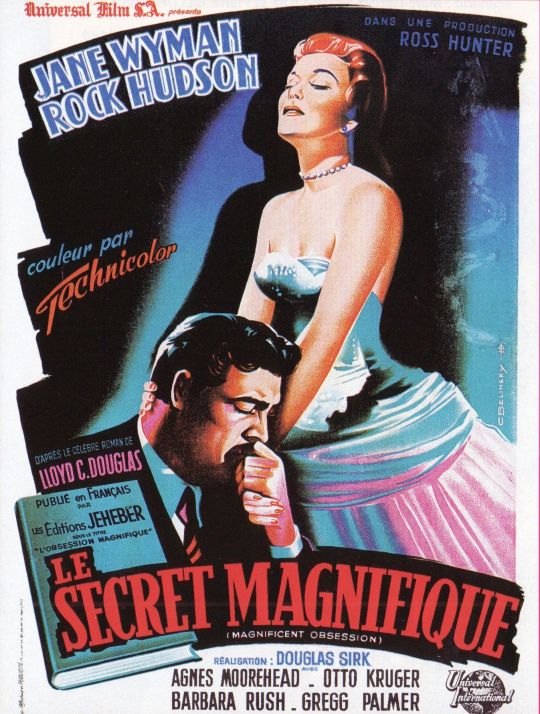
#magnificent obsession#jane wyman#rock hudson#agnes moorehead#otto kruger#barbara rush#gregg palmer#douglas sirk#1954
7 notes
·
View notes
Text
That’s My Boy
Suitable for a diverse audience, "That's My Boy" presents a blend of football, romance, and comedy.
In the span of seven years, Dean Martin and Jerry Lewis starred in sixteen movies together. That’s quite an accomplishment for such a short amount of time. While their partnership was not sustainable and led to a messy split, we have their movies to get an idea of what was once a great partnership. Their fourth installment, the Hal Walker directed, and Cy Howard written, “That’s My Boy” (1951),…
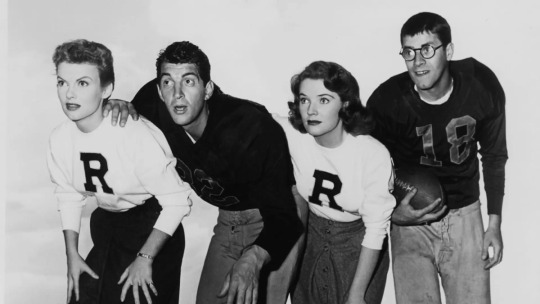
View On WordPress
#comedy#Cy Howard#Dean Martin#Eddie Mayehoff#Film#Francis Pierlot#Gregg Palmer#Hal Walker#Hazel Boyne#Hugh Sanders#Jerry Lewis#John McIntire#Lillian Randolph#Marion Marshall#Movie Review#Movies#musical#Polly Bergen#Ruth Hussey#Selmer Jackson#Sport#Tom Harmon
3 notes
·
View notes
Photo
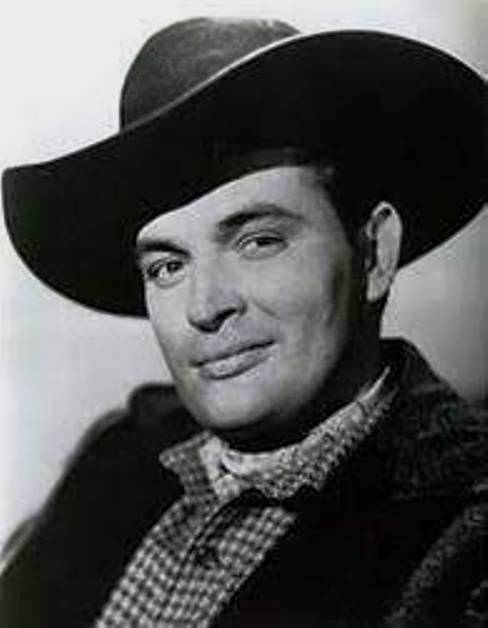
Character Actor
Palmer Edwin Lee (January 25, 1927 – October 31, 2015), known by his stage name Gregg Palmer. Film and television actor.
Palmer guest-starred in numerous television programs, including Gunsmoke, Bonanza, Wagon Train, Kolchak: The Night Stalker, The Virginian, The Wild Wild West, Rawhide, Star Trek: The Original Series, Mannix, Mission: Impossible and Death Valley Days. He played Tom McLowery in the western television series The Life and Legend of Wyatt Earp. Palmer retired in 1982, his last credit being in the miniseries The Blue and the Gray. (Wikipedia)
2 notes
·
View notes
Text
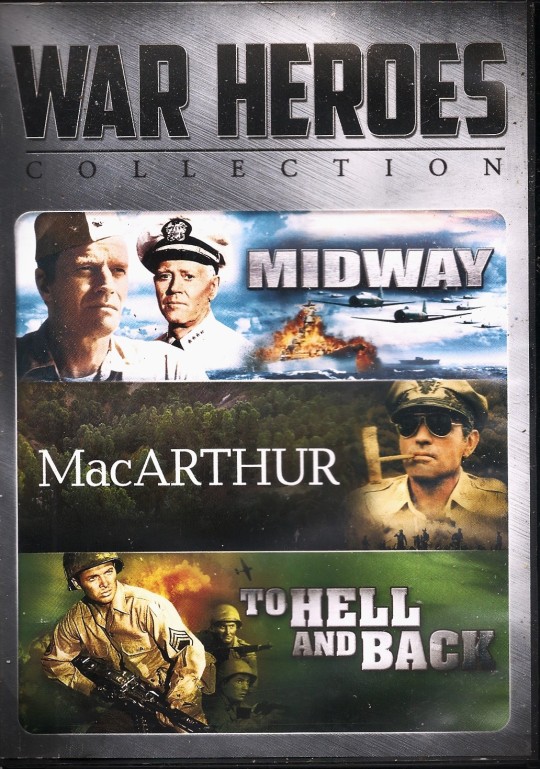
Bad movie I have War Heroes Collection it has Midway 1976, MacArthur 1977, and To Hell and Back
#Midway#Charlton Heston#Henry Fonda#James Coburn#Glenn Ford#Hal Holbrook#Toshirô Mifune#Robert Mitchum#Cliff Robertson#Robert Wagner#MacArthur#Gregory Peck#Ivan Bonar#Ward Costello#Nicolas Coster#Marj Dusay#Ed Flanders#Art Fleming#Russell Johnson#Sandy Kenyon#To Hell and Back#Audie Murphy#Marshall Thompson#Charles Drake#Jack Kelly#Gregg Palmer#Paul Picerni#David Janssen#Richard Castle#Bruce Cowling
0 notes
Text
31 ottobre … ricordiamo …
31 ottobre … ricordiamo … #semprevivineiricordi #nomidaricordare #personaggiimportanti #perfettamentechic
2022: Andrew Prine, attore statunitense. Di lui si ricordano le numerose partecipazioni in film western. Dopo aver terminato gli studi laureandosi nel 1954 alla Andrew Jackson High School di Miami, iniziò il suo lavoro di attore tre anni dopo, mentre il primo ruolo importante arrivò nel 1959. Partecipò anche a diverse serie televisive fra cui Dallas e Visitors. 1974 decise di posare completamente…
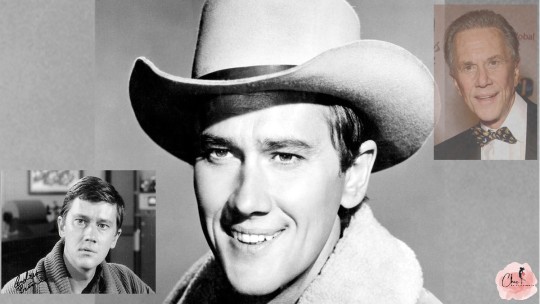
View On WordPress
#31 ottobre#Andrew Prine#Ann Crumb#Antonio Barpi#Carlo Giuffré#Charles Henry Daniell#Eduardo De Filippo#Ehrich Weisz#Federico Fellini#Gregg Palmer#Harry Houdini#Henry Daniell#Mari Aldon#Marie Booth Russell#Mario Donen#Mario Papotti#Max Reinhardt#Maximilian Goldmann#Morti 31 ottobre#Palmer Lee#Raf Vallone#Raffaele Vallone#Rita Johnson#Rita McSean#River Jude Bottom#River Jude Phoenix#River Phoenix#Sean Connery#Sir Thomas Sean Connery#Toni Barpi
0 notes
Text
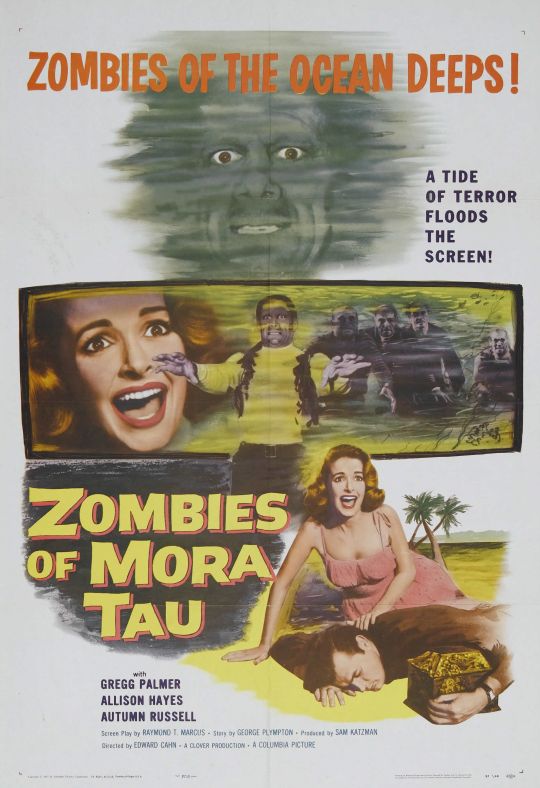
Films Watched in 2023: 104. Zombies of Mora Tau (1957) - Dir. Edward L. Cahn
#Zombies of Mora Tau#Edward L. Cahn#Gregg Palmer#Autumn Russell#Marjorie Eaton#Joel Ashley#Allison Hayes#Morris Ankrum#Gene Roth#Karl “Killer” Davies#Films Watched in 2023#My Post
1 note
·
View note
Text

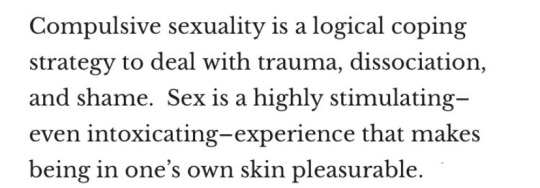



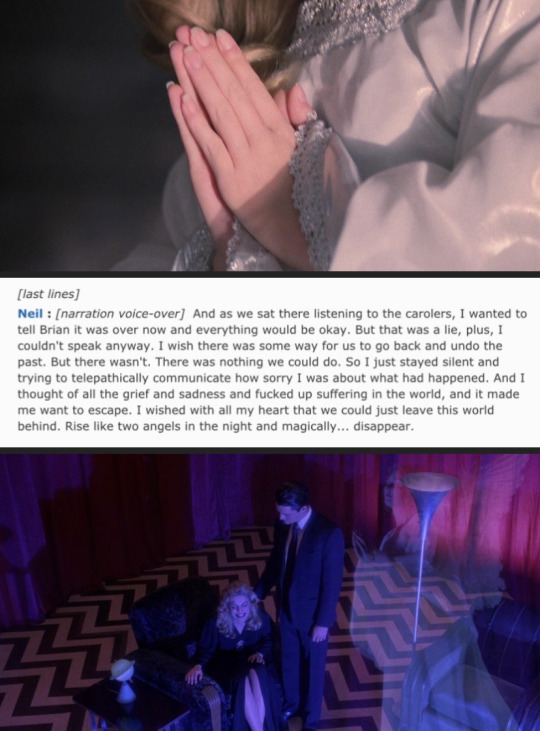



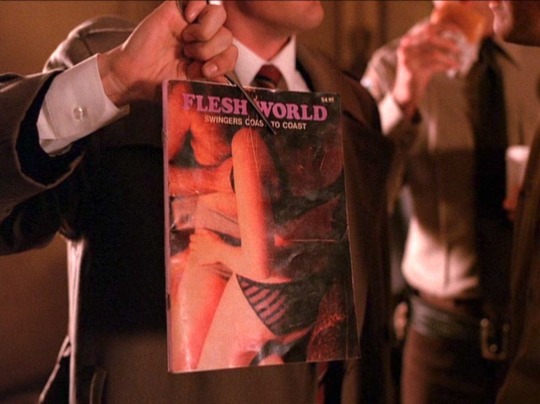
Laura Palmer + Neil McCormick, Brian Lackey
#twin peaks#mysterious skin#twin peaks: fire walk with me#laura palmer#gregg araki#cw csa#ask to tag
2K notes
·
View notes
Text






A Discovery of Witches Real Time Read 2024 Ch21
"I have come to serve you with a warning, Diana Bishop. Relationships between witches and vampires are forbidden. You must leave this house and no longer associate with Matthew de Clermont or any of his family. If you don’t, the Congregation will take whatever steps are necessary to preserve the covenant.’
‘You’ve delivered your warning, Domenico,’ Matthew said in a voice like silk. ‘That’s all I have to say to the witch,’ the Venetian replied. ‘I have more to say to you.’ ‘Then Diana will return to the house. Get her out of here, Maman ,’ he said tersely."
No more dancing and and other "related activities" for Matthew and Diana. The Congregation are such party poopers 😤
On the other hand, I am 100% there for an aggravated Matthew and his epic death stares.
📷 Sky/Bad Wolf A Discovery of Witches (2018) s1:04 my edits
#matthew goode#matthewgoode#lindsay duncan#gregg chillin#sorcha cusack#teresa palmer#a discovery of witches#adow#vampire#vampire love
72 notes
·
View notes
Text

107 notes
·
View notes
Text
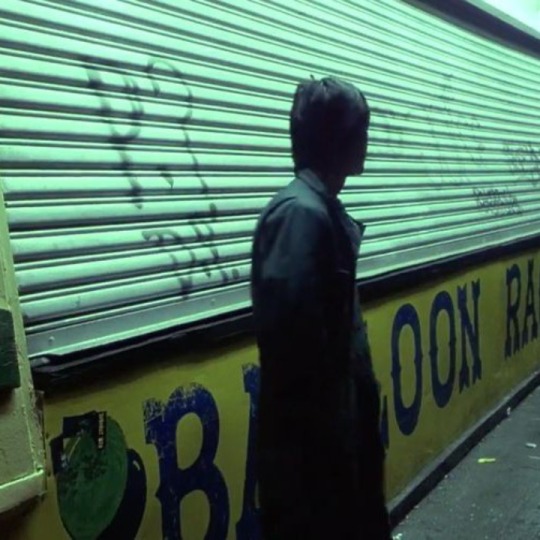




i want to look like this type of shit
#gregg araki#totally fucked up#requiem for a dream#twin peaks#laura palmer#2012 tumblr#moodboard#grunge#boy blogger#spotify
78 notes
·
View notes
Note
ehh thats not really true. While pitman uses line position to mark vowels, for the most part you i find that in actuality you can pretty easily write pitman without lines. If you can easily write a fairly straight line in normal penmanship on unlined paper, you should be able to do it with pitman. The majority of the most commonly used words can be written without vowel markings without potential confusion anyway. If you want to further reduce confusion you may want to include the vowel markings, which may slow you down. I cant speak for teeline from a perspective of personal experience but afaik it needs lines about as much as Gregg does. This said it is true that pitman is probably the hardest to write and read without lines, so thats worth taking into consideration.
Ultimately it very much depends on the person and this is good piece of advice especially for, for example, people who struggle to keep their writing in straight lines. and while youre learning i would advise using lined paper for any shorthand :)
do u have a reccomendation for what form of shorthand to learn first. deeply interested-- i saw ur reply on that one post and then u seem cool so i just followed u and figured i would ask here
hello !!! thank you for asking !!!!!!!!!! and im so sorry this is so long lol
If you want my biased personal recommendation, I would suggest Pitman New Era. That's what I use, and I think its the best balance of efficiency vs difficulty to learn, and I like that the learning curve is such that, as you learn, you apply more rules that simplify the writing process more (meaning that earlier practice is still legible, if far less efficient). This compared to other forms (like Gregg) where, as you learn, youre just kind of generally suffering and trying to get your brain to memorise things and differentiate very similar looking strokes. I find Pitman also lends itself well to using in conjunction with other "standard" writing styles so you can take notes that are enough in "standard" writing to be skimmable while using enough shorthand to be much faster to write, basically maninmising writeing AND reading speed. [example below]

You can skip to the end for resources for Pitman and shorthand in general if this answer is sufficient :)
If you want a horrifically long, massively autistic answer that breaks down the three most popular/common styles, then thats what the rest of the post is !! It is so fucking long I am so sorry
Horrifically Long Answer:
I'm answering on the assumption that you would be learning for use with english. If you want to learn shorthand for another language there are a variety of options however I am less versed in them :( I'm also assuming you're asking out of personal interest rather than vocational, since certain jobs will recommend or require you learn certain styles of shorthand and it would be best to defer to that.
The most popular methods are Gregg, the various forms of Pitman (this is what I use), and Teeline. Gregg and Pitman are phonemic while Teeline is alphabetical. There are also a huge number of other, less popular forms of shorthand (as well as shorthand systems which are popular in/made for other languages). If you're interested in learning about these, check out the subreddit listed at the end of this post under "resources".
Teeline:
I know much less about Teeline, so I'll go into it less, but basically it is a "spelling-based" shorthand system -- that is, it is based off the standard spelling of words. It replaces latin letters which different forms that are faster to write and can be connected more efficiently, while removing extraneous letters from words. It is simpler to learn, in part because it is spelling-based, and also because it has fewer rules which further consolidate and shorten word forms. Due to this, it is ultimately much slower to write than the other two systems mentioned here (although you can still get up to good speeds !!). Like the other shorthand systems, you can learn to a more basic extent, or learn more advanced theory to maximise its capability and speed. Teeline is very standard for journalism and overall quite popular for professional use, however it is still in copyright and so there are far fewer resources available online. If you are interested in taking classes, however, I would assume those are available.
Teeline TL;DR: alphabetical, simplest to learn but less efficient, popular, still in copyright so fewer resources.
examples of Teeline:
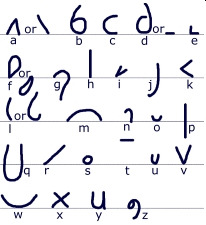


[images sourced from wiki]
Pitman and Gregg: Phonemic Systems and Regional Accents:
As mentioned, Gregg and Pitman are phonemic. If you dont have any practice with phonemic writing systems, you might have luck starting out with shavian just to practice. also because shavian is fun :) (its one of the writing systems in my header !) Im saying this partly because I want more people to learn shavian and partly because I learned Shavian long before I learned Pitman and found that having that practice was helpful. In particular, if you have any accent other than RP, its helpful for figuring out either which vowel sounds and phonetic spellings are relevant to your accent and your pronunciation, or, should you choose to go a "standard" (RP) route, how certain words should be spelled despite how you may pronounce them. Using a "standard" RP approach can be helpful if you want people to more easily be able to read your writing or want to "match" the dictionary, but someone well versed in shorthand should be able to figure it out no matter what, and if its just for your personal use I'd suggest just going by your own regional pronunciations.
Pitman:
Pitman was an early shorthand system developed in the early to mid 1800s. It used to be the most popular shorthand system, however nowadays has been eclipsed in popularity by Teeline and/or Gregg, depending on the country and occupational context. However, it remains popular among enthusiasts and there are significant amount of resources available for learners and practitioners.
The main thing to know with Pitman is that words are built using different strokes for each consonant sound, and symbols attached to these consonants to mark vowels. These consonant sounds are differentiated by shape as well as line thickness. Voiced and unvoiced pairs of consonants (eg., T and D, C and G, S and Z, etc.) are designated using the same strokes, with the voiced consonant of the pair being thicker than the other. This line variation is something which is normally achieved with a pencil, though I mostly use fountain pens to write and so I use flex nibs to achieve the same effect.
Vowels are marked with certain dots or dashes placed along corresponding consonant markings, For increased writing speed, most vowel markings can also be left off in Pitman, and instead where on the line the first stroke begins serves to signal the first vowel.
Pitman uses short forms (also called "logograms" or "grammalogues," depending on the version and book you use) which are abbreviated forms of commonly used words (see picture below for a few examples). Different versions of Pitman have different numbers of grammalogues.
With Pitman, efficiency is increased through a combination of memorising various short forms and implementing rules which simplify strokes. (Examples of these can be seen in the picture below. probably need to click to be able to actually see anything rip) This allows you to have certain "levels" of complexity, where as you learn more complex rules you increase in efficiency, but you can also eschew some of those rules if they are too complex for you without sacrificing legibility to you or proficient practitioners. Probably someone somewhere on reddit has something to say about that but tbh who gives a fuck. You can do whatever you want forever. Its known to be very common for people to come up with their own personal shortcuts and variations in whatever shorthand system they use, and imo sometimes that just means looking at a rule and going "well thats stupid👍" and ignoring it. Pitman can seem really intimidating, however just remember that you can ignore rules for as long as you want until they are less intimidating to learn and apply.
There are 3 "main" versions of Pitman: the original system, Pitman New Era, and Pitman 2000. New Era has the most complex system of rules and abbreviations, while 2000 simplified many of these and got rid of most of the abbreviations. I personally use New Era, in part because I was able to access more resources for this, but largely because I found the increased number of rules and abbreviations to be better in the long run. If you are willing to invest more time and effort into learning a more complicated system, with the tradeoff that it will be faster and easier once you are proficient, you should learn New Era. The main benefit of 2000 is that the rules are simplified. I would say, however, that the downsizing of the list of abbreviations is not a benefit. While it in theory requires you to memorise more individual symbols, in practice these abbreviations are commonly used enough that they can become automatic with very little practice. If you decide to learn 2000, I would suggest taking he time to go through the list of abbreviations from New Era and, if not learning all of them, picking out the ones you think you are likely to use with semi-regularity. If you compile them into a cheat sheet and hand it next to your desk, they should be easy to practice using and become memorised really quickly. I myself dont have every abbreviation memorised, but instead focused on ones i use regularly, and often go through the list again to pick out new ones to learn and add to my lexicon as I think they may be used.
Pitman TL;DR: phonemic, differentiates strokes through line thickness, rules can be applied or discarded as best suits your practice without sacrificing readability. Increased speed and efficiency is achieved through extra short forms for commonly used words, and rules which simplify strokes.
examples of Pitman:
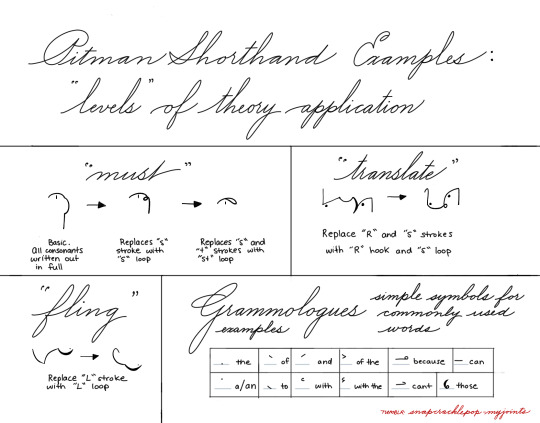


[first image mine, other two images sourced from Long Live Pitman's (website, linked below), and wiki]
Gregg:
Gregg is a very popular form of shorthand which utilises round, smooth strokes with the intent of increasing writing efficiency and legibility.
Where Pitman uses variation in line thickness to differentiate between strokes, Gregg uses line length. Both consonants and vowels are marked with designated strokes (compared to Teeline, which has vowel strokes but tends to omit them where possible, and Pitman, which adds vowel marking to consonant strokes or signals vowels through figure placement), and vowels are largely kept in-line. With Gregg, efficiency is achieved through the use of short forms, prefixes, and suffixes; "phrasing", (wherein certain phrases, such as "I may be," "one of the most," "by the," etc. are combined into a single stroke); as well as through the more efficient way in which strokes are joined together into words.
Left-handed people sometimes write Gregg from right to left.
Like Pitman, there are a number of different versions of Gregg, however Gregg seems to have significantly more versions and significantly less consensus around which version is best or why. I am not the best person to give advice on which one is best or information on the different types, so if you decide to go with Gregg I'd suggest checking out the subreddit or some of the other resources linked below for information on that.
examples of Gregg:

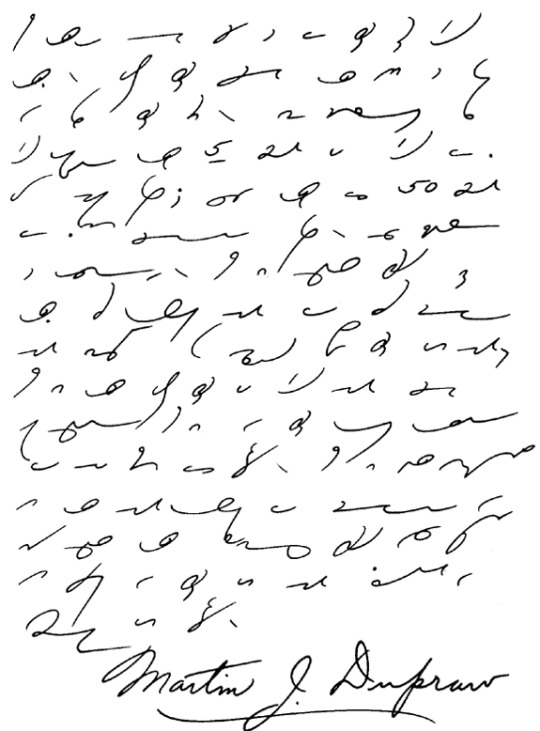

[Images sourced from wiki and gregg-shorthand.com]
Comparisons:
I would say that one of the main things to consider if choosing between Gregg and Pitman is which you think is more intuitive to read and write for you. Which sounds obvious lol but like. as an example. I struggle with spatial awareness and stuff like estimating lengths so for me Gregg is not a good option since it differentiates certain consonants through their length and I would have a hard time writing those consistently or easily reading them. Pitman is easier for me in that regard, as well as since it is more "choppy" (for lack of better word) which makes it much easier for me to recognise certain words without having to break them down, as well as making it easier for me to break them down to read them should I need to. On the other hand, some people find Gregg to be easier since its much "smoother" and flowier to write, which can be much faster and more intuitive for some.
Compared to Pitman, Gregg has significantly fewer rules to learn, making it in theory simpler, however, due to the way it is written, it requires significantly more practice to be able to consistently properly write and tell apart certain letters, words, and phrases. Once you are proficient in this, it is by far more efficient, however Gregg is very difficult to use while you are still figuring it out. Pitman, on the other hand, has significantly more rules, however you can continue to easily use it as you learn these rules and add them into your practice. The downside of this is that once you are fully proficient, it is less efficient than full proficiency Gregg. Essentially, the main difficulty with learning Gregg is telling apart different strokes and writing them so that they can be differentiated, while the main difficulty with Pitman is in learning the rules.
I havent talked much about Teeline because honestly I know far less about it, because it is so much harder to find resources on, and honestly because I'm a bit of an old man and personally prefer the older styles lol. Its popular for a reason, though !
I know it probably sounds like I'm shilling a lot for Pitman, however thats just because its what I use and know the most about, as well as because it is what works best for my unique considerations. Most people would probably be more likely to recommend Gregg (for a number of very good reasons !), however when I was first deciding which shorthand system to learn I saw very few people making the points that were most relevant to me (eg, that pitman can be used AS you learn, whereas Gregg is more of a "its useless until you actually have it down" situation, that Gregg is really difficult if you struggle with differentiating lengths, etc) so I feel the need to mention them
TL;DR: Everything:
Ultimately you should use whatever you think is best for you :) I'd say Teeline is your best bet if you are in journalism, or want something easier. Gregg is best if you want something popular, smoother to write, and extremely fast, and are willing and able to put in significant amounts of consistent work and practice to master it. Pitman is best if you want something you can use as you learn, and that's somewhere in between Teeline and Gregg in terms of difficulty and efficiency. If you wanted, you could probably learn Teeline as well as either Pitman or Gregg, but learning both Pitman and Gregg would be much more difficult.
Other:
I take all my notes by hand, generally using a mix of palmer method cursive and pitman shorthand to do so, however, I also have to write a lot of papers, and when I do, I get frustrated at having to type out whole words I normally write in shorthand. This is kind of the curse of shorthand, you get really annoyed having to type out "because". To deal with this, while typing in a word processor, I use an alphabetic shorthand I've come up with over time. I basically input a bunch of auto-replacements into my spellcheck, so that I can have shortcuts for commonly used words set up. so basically i can write: "here, . cnstrctn ` ntnl idntty served to lgtmse the ntn stte" and it will autocorrect to "here, the construction of national identity served to legitimise the nation state". Highly recommend this if you do a lot of writing, especially if a lot of the same topics and words come up a lot. Use whatever shortened versions feel intuitive for you, instead of something you've consciously + intentionally constructed, otherwise youre more likely to forget them or have them get mixed up.
Resources:
stenophile.com has a huge number of shorthand resources linked, particularly for Gregg and Pitman. If you end up choosing either of these I'd suggest starting here to find instruction books.
this website can transliterate into Pitman and Gregg, DEK and Stolze-Schrey (two German shorthand systems), and Sütterlinschrift (a historical German script)(also in my header !)
r/fastwriting is run by a very nice very dedicated man who posts a huge amount of content and resources on various shorthand methods, including lesser known ones. If you decide you want to learn/learn about a different shorthand system, he's the guy to talk to. This subreddit differs from r/shorthand or system-specific subreddits like r/greggshorthand, as those are more discussion-based for learners and practitioners, while r/fastwriting is better for research and being autistic. R/shorthand does have a number of resources listed for more popular shorthand systems, and is a good place to go for advice while learning.
Teeline:
blog with a few free resources
Pitman:
Pitman New Era Instructor and Dictionary. These are what I largely used to learn.
Long Live Pitman's: a website dedicated to Pitman, full of good information for beginning learners.
if you learn Pitman, as mentioned the line variation can be accomplished with a pencil, however if you want to get a bit fancy with it while staying on a budget, Fountain Pen Revolution carries a number of cheap yet reliable fountain pens with flex nibs, such as the FPR Indus or Himalaya. I'd suggest the steel flex rather than the ultra-flex for shorthand unless you have a lighter hand or have practiced with a flex pen before. I've also heard good things about the Noodler's Ahab pen but honestly find its very temperamental, needs tweaking (not ideal if youre a fp beginner) and just not as good. Both FPR and Noodler's pens are made of bioresin and must be kept away from solvents like isopropyl alcohol !!!
Gregg:
Gregg Phrasebook. Short guide to phraseology for Gregg
Gregg-shorthand.com: seems like a good place to start for learning Gregg. Answers some beginner's questions, and provides learning aids and reading material (transliterated into Gregg)
r/greggshorthand
greggshorthand.gibhub.io: a more in depth website with a number of book pdfs and lessons for various forms of Gregg.

#thats a really good addition bcs it is smth worth taking into consideration thankyou ! :)#actually i think graph paper is even better for learning for all of these esp pitman and gregg bcs it helps you better get a handle on...#...the length of strokes n making them consistent#sorry this is written like a squirrel on ritalin im working on my thesis rn and it makes my brain useless 👍#shorthand#ceci says stuff#also for example when i use a mix of pitman and palmer#i write all my shorthand on the same line position#and just include vowel markings where needed#tho i motsly exclude them even then just bcs its words i use a lot#and already know for sure#or like. also bcs i dont think im gonna confuse 'nationalism' for much of anything else.
21 notes
·
View notes
Text





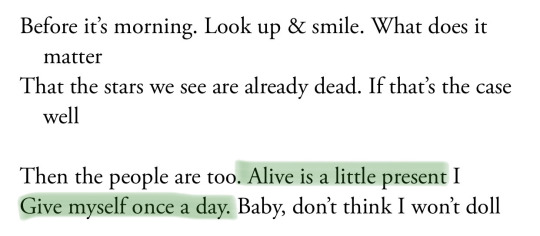




my hands have made / some good mistakes. they can always / make better ones.
linda gregg, i thought on his desire for three days // mary oliver, invitation // nikki giovanni // voltaire, candide // gregory orr, to be alive // amy woolard, laura palmer graduated // ingmar bergman // sylvie baumgartel, song of songs: a poem // joan tierney // wendy cope, the orange
#words#quotes#collections#web weaving#mine#linda gregg#mary oliver#nikki giovanni#voltaire#gregory orr#ingmar bergman#joan tierney#wendy cope#the last one of these did so well so i thought id do another!#who else maybe possibly wants to live?
1K notes
·
View notes
Text
Twin Peaks Extended Media
Whether it is for the lack of knowledge in mainstream Twin Peaks spaces regarding them or how some of these things are hard to get, the extended media of Twin Peaks but especially the books are constantly overlooked and ignored for various reasons.
I had done an (incomplete) index of it that blew up in my original account, and I had redone it (but as a more extensive guide that also included the order to watch the show). However, I changed my mind and decided to redo it, since the third time's a charm, right?
Most of these things include spoilers of the three seasons and the movie, so watch and read at your own risk.
AUDIOBOOKS AND COOPER'S TWIN PEAKS TAPES
The audiobooks consist of Laura's diary, the last two books narrated by cast members of the show, while Cooper's tapes were done by Kyle MacLachlan around the time the show was created, and (believe it or not) earned him a Grammy nomination for it.
Laura Palmer’s Diary (narrated by Sheryl Lee).
Diane: The Twin Peaks Tapes by Agent Cooper (narrated by Kyle MacLachlan).
The Secret History of Twin Peaks (narrated by Mark Frost, Len Cariou, Michael Horse, Mat Hostetler, Amy Shiels, Chris Mulkey, David Patrick Kelly, Robert Knepper, Kyle MacLachlan and James Morrison).
The Final Dossier (narrated by Annie Wersching).
BOOKS AND TEXT
Possibly the most overlooked section in Twin Peaks media. Mostly because some fanboys wrongfully think that because David Lynch didn't write them, it doesn't add to the story and canon, which is a wrong thing to say since these books were written by people involved in the show. Especifically, the writers wrote them and were given notes by Frost and Lynch.
The Secret History and The Final Dossier contain spoilers for the three seasons, so read them at your own discretion.
(*) Laura's diary and Cooper's autobiography are the only texts available in Glastonberry Grove. My recommendation is to copy the text and paste it on a google document, since the PDF has the pages ordered in a way you can later print it and build the book on your own.
The Secret Diary of Laura Palmer (written by Jennifer Lynch)*: Laura's diary is written on the day of her 12th birthday, and ends on February the 23rd, 1989. The book (like Cooper's) is very graphic since Laura has to constantly face BOB in her dreams and in real life, and struggles with how others perceive her as well as harm herself in order to avoid BOB hurting the ones she loves. It does not include the missing pages of her diary.
Internet Archive Link
Glastonberry Grove PDF + Text
Twin Peaks: Access Guide to The Town (by Gregg Almquist, Tricia Brock, Robert Engels, Lise Friedman and Harley Peyton with David Lynch, Mark Frost and Richard Saul Wurman): It's the hardest book to get from the books that were released in the nineties. The Access Guide is somewhat of a predecessor of The Secret History, since it includes some of the origins of Twin Peaks. However, the Access Guide also includes newspaper articles, a donuts recipe, and more fun stuff!
Link of the PDF (It won't show a preview because of how heavy the document is, so simply download it)
The Autobiography of Special Agent Dale Cooper: My Life, My Tapes (written by Scott Frost)*: Cooper's autobiography starts in 1967 and ends on February the 24th, 1989. It featured short interviews from Cooper's friends and other people connected to him and transcripts from his tapes. Like Laura's, Cooper experiences tons of horrifying and sad things, from sexual abuse to murder so reader discretion is advised.
Internet Archive Link
Glastonberry Grove PDF + Text
The Secret History of Twin Peaks (written by Mark Frost): A dossier of Garland Briggs that narrates the history of the town as well as the families that ahve stayed there, alongside relationships in the FBI, it includes letters, menus, classified FBI documents, drawings, fragments of books with notes done by Agent Tamara "Tammy" Preston.
Internet Archive link
The Final Dossier (written by Mark Frost): After the events of The Return, Gordon Cole assigns to Tammy the mission to interview people that were missing in The Return (Annie, Audrey, Donna, Harry, etc).
Internet Archive link
Star Pics Cards: A limited edition series of cards done by the writers of the show including the information of most of the characters, items and spaces featured on the first two seasons (With the exception of Denise Bryson).
Glastonberry Grove index
The Music of Twin Peaks introduction: A small text that came with the album "The Music of Twin Peaks", released in 1990.
Glastonberry Grove link
Twin Peaks scripts: The scripts and transcripts for the first two seasons as well as other texts.
Glastonberry Grove text index
MISCELLANEOUS
Blue Velvet (dir. David Lynch, 1986): Some could say this is the predecessor of Twin Peaks, considering Jeffrey Beaumont (Kyle MacLachlan), Sandy Williams (Laura Dern) and Frank Booth (Dennis Hopper) are considered prototypes for Cooper, Diane and BOB by Dern, Lynch and MacLachlan. Set in a 50s ambiented town in North Carolina in 1984, Blue Velvet is about a 21 year old college dropout named Jeffrey Beaumont who finds an ear on his way home after visiting his hospitalized father. The movie includes three, very graphic scenes, so watch it at your own risk.
Blue Velvet trailer
Internet Archive link
Mulholland Drive (dir. David Lynch, 2001): Originally going to be an Audrey Horne spin-off for TV, Mulholland Drive is considered to be one of the best films done in history and the best of David Lynch's filmography by many alongside Blue Velvet, Fire Walk With Me and Lost Highway. After Rita (Laura Harring) survives a car accident on Mulholland Drive but suffers mass amnesia, she meets a up-and-coming star Diane (Naomi Watts) who's deeply intrigued about Rita's past, and together, try to solve the mystery of her past.
Mulholland Drive Trailer
Wrapped in Plastic Magazine: Released for the first time in October of 1992, Wrapped in Plastic Magazine is the most recognizable out of the Twin Peaks related magazines that exist since the start of the show. The issues include essays, theories and even interviews to the stars as well as issues dedicated to other shows and movies like The X-Files!
MUSIC
Music is also one of the most important things in the show (and also one of the best things), as it sets the mood and the personality of each character without having to say anything.
In Glastonberry Grove, you can find the music notations of Angelo Badalamenti for Laura’s theme, the music from the intro (also known as the Falling instrumental), Into The Night, Falling, Dance of the Dream Man, Audrey’s Dance and more.
Floating Into The Night (All of the songs but Mysteries of Love, I Float Alone, The Swan, Floating and I Remember are featured in the show) by Julee Cruise.
The first season Soundtrack by Angelo Badalamenti
The second season Soundtrack by Angelo Badalamenti (including unreleased tracks!).
The Double R Jukebox playlist I made taken from the Access Guide! It features most of the songs but since some of them aren’t on Spotify, you can also find it here.
The Fire Walk With Me Soundtrack by Angelo Badalamenti, Julee Cruise and David Lynch.
The Return Soundtrack that features bands like Chromatics to singers like Rebekah del Rio and Eddie Vedder, as well as Julee Cruise and Angelo Badalamenti, of course.
PHOTOS, BEHIND THE SCENES AND DELETED SCENES
A Slice of Lynch: David Lynch interviews Kyle Maclachlan, Mädchen Amick and post-production supervisor John Wentworth to discuss about Twin Peaks.
A Talk with Kyle MacLachlan and Sheryl Lee: A preview of an interview Kyle and Sheryl did for the Twin Peaks: From Z to A boxset where they talk about Laura and Cooper.
COOP Visits the set of Twin Peaks: David Lynch, Frank Silva (BOB) and more thank the members of C.O.O.P. for helping save "Twin Peaks" after its close cancellation in 1991.
David Lynch interviews the Palmer family: What it says on the title! Lynch interviews Laura, Leland and Sarah 25 years after Laura's murder. This was done as a way to promote The Missing Pieces DVD, which are the scenes that were cut from Fire Walk With Me.
Fire Walk With Me (+deleted scenes, aka "The Missing Pieces"): The extended version of Fire Walk With Me that features the deleted scenes, considered by many the definitive cut of FWWM.
Fire Walk With Me discussed by David Lynch, Kyle MacLachlan and Sheryl Lee: An interview they did in 2003 where they talk about FWWM.
Georgia Coffee commercials: The Georgia Coffee commercials were a series of ads directed by David Lynch for a Japan only Coca-Cola line of canned coffee featuring Cooper and the police station trying to help a mysterious man named Ken, whose girlfriend is stuck in the Black Lodge.
Invitation to Love: In the show, Lucy, Nadine and other characters are obsessed with an exaggerated soap opera named “Invitation to Love”. You can see the whole show (16 minutes) here! The band Her’s named their album “Invitation To Her’s” after this parody.
Kyle MacLachlan Twin Peaks SNL parody: The Twin Peaks parody Kyle MacLachlan did in the episode he hosted of Saturday Night Live in late 1990.
Making Bets: A deleted scene featuring Cooper and Harry set around season two where they make bets on the Seahawks game.
Meet the Makers: A series of interviews with the writers and crew of Twin Peaks.
Mauve Zone: A photo archive featuring promo photos, Richard Beymer's polaroids, polaroids of the actors on the costume tests, behind the scenes footage of the three seasons and the movie, as well as outtakes, spoofs and deleted scenes.
Scenes Deleted: A YouTube channel who uploaded most of the deleted scenes of the first two seasons.
Twin Peaks: The Return behind the scenes: These were short films filmed by Richard Beymer during the production of the return. Most of them are featured in the DVDs of the complete series, but you can find the following on YouTube:
David Lynch as Gordon Cole
I Had Bad Milk in Dehradun
The Man With the Gray Elevated Hair
The Woodsman
SOURCES:
Glastonberry Grove: A great website filled with content from the original series. I'm very glad this site exists!
@laughingpinecone 's blog: If it weren't for Eva's amazing blog, I wouldn't have known half of these amazing web pages and sites. Go check out her amazing blog if you love Twin Peaks, Disco Elysium, Myst and more!
#twin peaks#dale cooper#laura palmer#david lynch#mark frost#kyle maclachlan#sheryl lee#angelo badalamenti#julee cruise#music
237 notes
·
View notes
Text
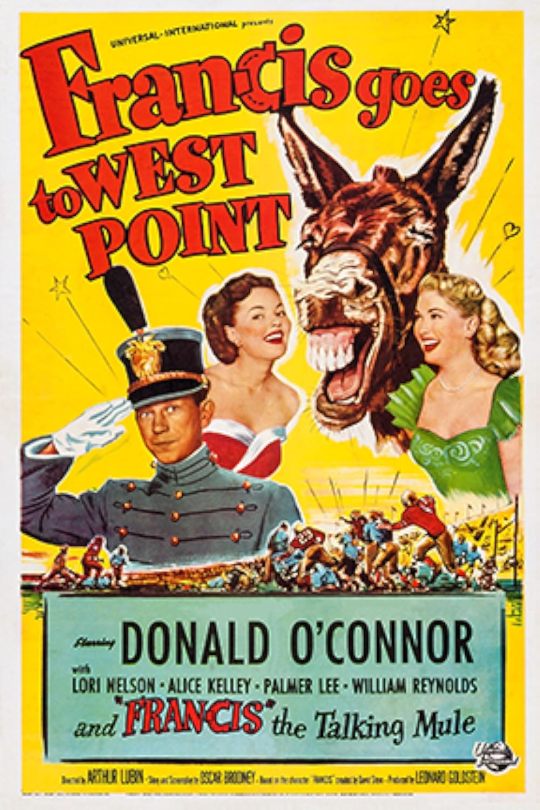
200 Films of 1952
Film number 187: Francis Goes to West Point
Release date: July 1952
Studio: Universal
Genre: comedy
Director: Arthur Lubin
Producer: Leonard Goldstein
Actors: Donald O’Connor, Lori Nelson, Alice Kelley, Gregg Palmer
Plot Summary: With the help of Francis the talking mule, Peter becomes a hero by saving an atomic plant from a bomb attack. His heroics capture the attention of the US Government, and he is offered a spot at West Point. But can this bumbling hero really make the grade there?
My Rating (out of five stars): **¾
By making my list 200 films long, I’ve included a lot of things I would never purposely choose to watch. So, I’ll be real- I hate talking animal movies. I can’t stand them. I love animals, but I loathe when real live animals talk in movies. (If it’s a cartoon animal, that’s a different story.) If they are older films, I especially worry about how the animals were treated on and off set. So... I did not want to put this film on my list! I finally gave in because it was a hugely popular and culturally significant series of movies right dab in the middle of 1952. Hell, Francis was even a guest on an episode I saw of What’s My Line? I like Donald O’Connor too, so hearing he starred in these helped push me to give it a try.
The Good:
Donald O’Connor! He is utterly charming and impossible to hate. He can always make me at least giggle or smile.
For once we got a moderately realistic portrayal of a military school or basic training! All the other films I've seen from 1952 made joining the military seem like a summer camp or a class trip. Here there was tough discipline that characters could not talk their way out of.
The real life footage of the military drills was wowing.
I also loved the bona fide footage of a college football game. Seeing a real stadium filled with thousands of people... even seeing the parking lot teeming with vintage cars and buses was a weird nerdy highlight for me! Those snapshots of the actual world at the time are so fascinating. Still.
I was kind of ambivalent to Francis, but I did find it amusing that he seemingly randomly knew everything there was to know. When he was tutoring Peter in French, that did make me smile.
The Bad:
I didn’t find the film terribly humorous. I smiled a few times, and maybe there was a giggle here and there, but was it funny? Not to me. But I also know I am not the audience for this.
The whole premise was so ridiculous, sometimes it was too hard for me to set aside.
The plot was relatively loose. A lot of these kinds of comedies can turn into a succession of gags bound together by the thinnest of threads. This movie wasn’t that bad- it did have a rough plot at least, but sometimes it was still too erratic.
I try not to be mean to actors, but the actress who played Cynthia, Peter’s possible love interest, was not good. Her line delivery wasn't too bad, but her expressions were off. She kept her eyes so wide open it looked like she was having an eye exam, and it was just kinda weird. I’m sure she was a lovely person, though. ;-D
And speaking of the possible romance- what happened at the end? We never found out anything about Peter and Cynthia being together or not.
The characters were not developed at all. I know that is expected from a comedy geared toward kids, but it made it hard to actually care about the people in it. For example, I kept getting Peter’s two roommates mixed up because they were almost indistinguishable.
Who designed that horrible horrible poster?
3 notes
·
View notes